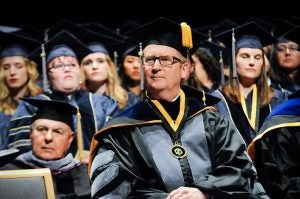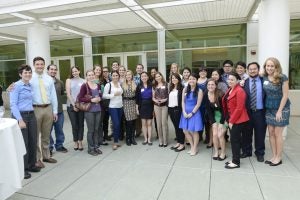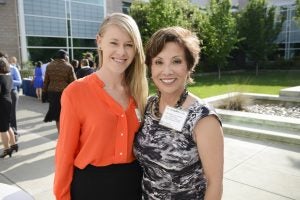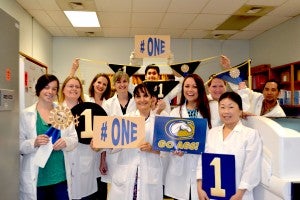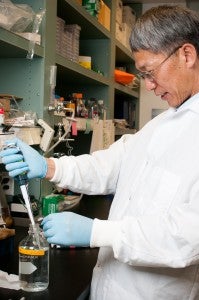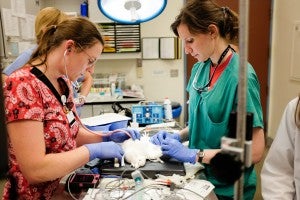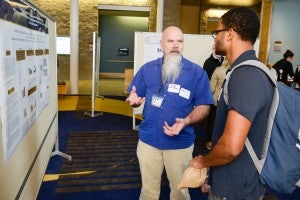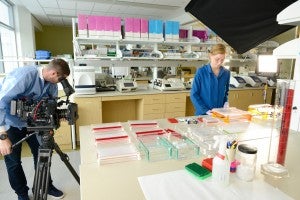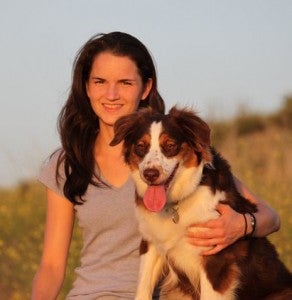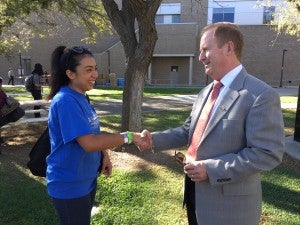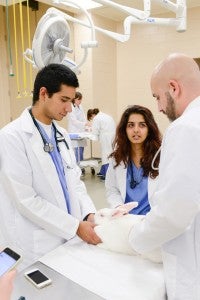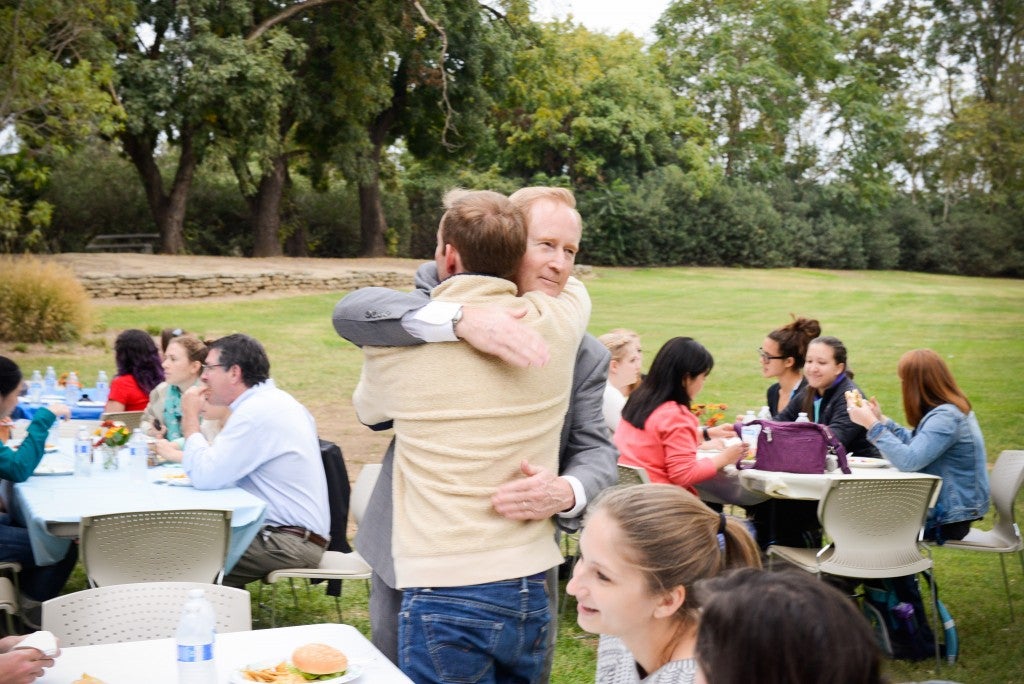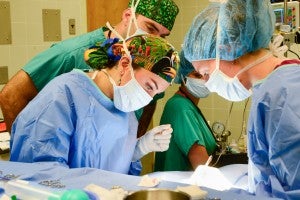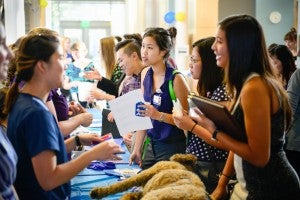“It is not in the stars to hold our destiny but in ourselves.” – William Shakespeare
As I begin my second term as dean of the UC Davis School of Veterinary Medicine, I am humbled and honored to continue to lead an institution that is the global leader in veterinary medicine. Our vision over the next five years will undoubtedly continue to be guided by the desire to lead veterinary medicine and address societal needs. As we advance the health of animals, people, and the environment, we must continue to examine how we can refine our goals and tactics if we are to remain a world leader.
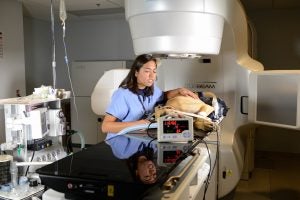
Blanca Camacho, a 2016 graduate, checks on a dog prepared for treatment with the linear accelerator.
To continue to educate leaders in veterinary medicine in all its many facets, we will need to seek out ways to diversify our faculty, staff, and students to fully reflect our society. We must continue to expand our innovative programs to recruit students who are both academically strong, but also reflect the demographics of the society they seek to serve. They cannot all be focused on one career path, but be trained in and willing to serve in the vast array of careers offered to veterinarians and scientists with unique biomedical knowledge and skills. Our faculty must be leaders in their fields, to maintain our leadership position in research, education, and service, but also reflect the diversity of our society.

